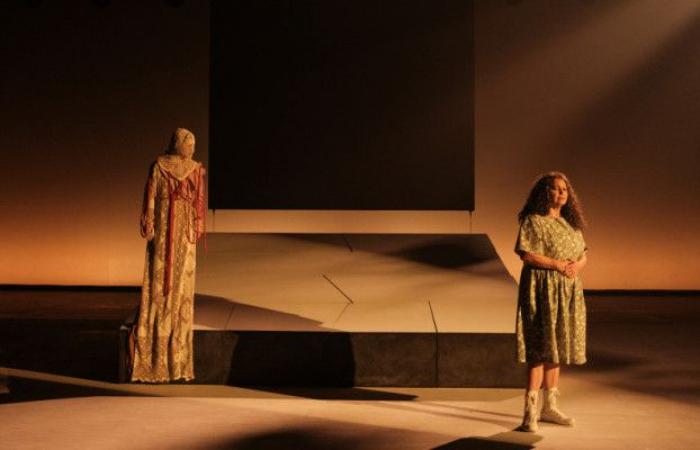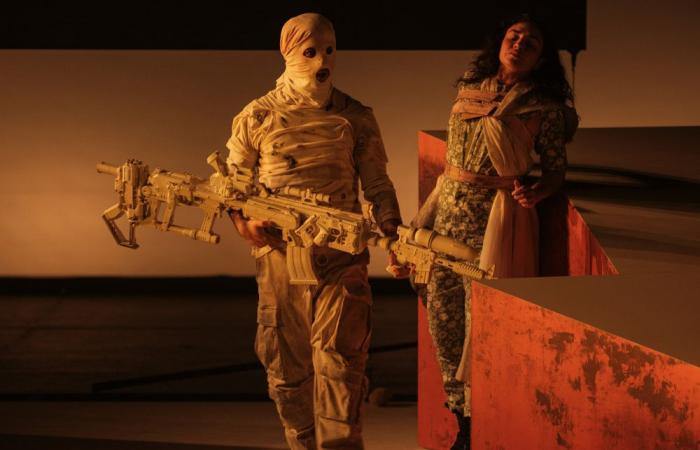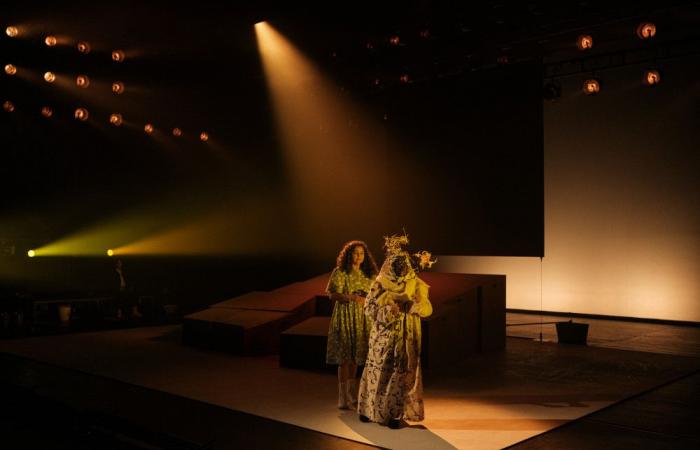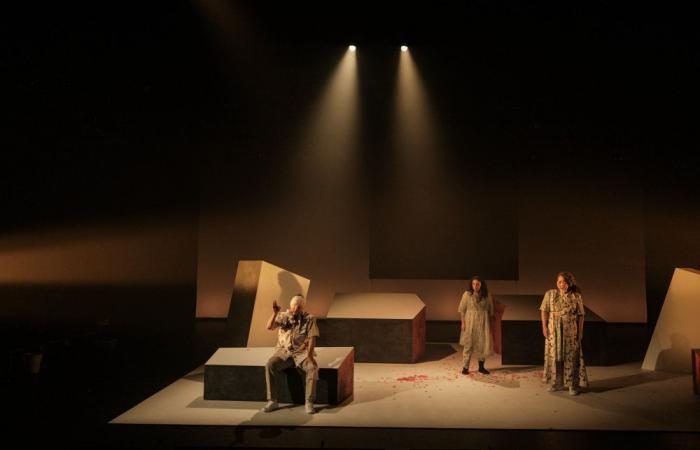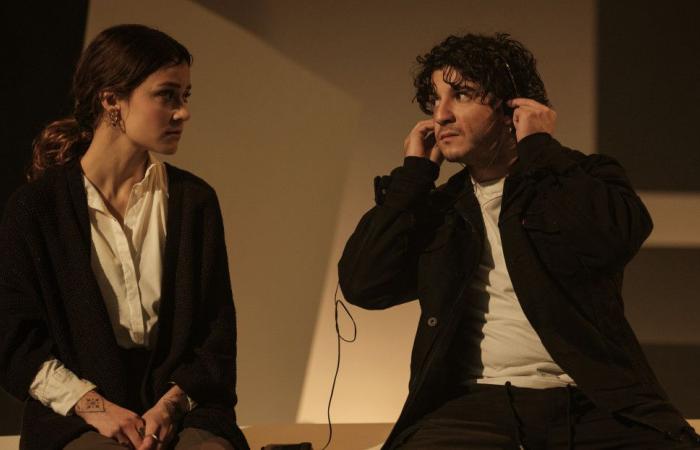It is in a vibrant breath and a palpable intensity that Fires revives the ashes of a hidden past. Between the quest for truth and the duty to remember, this masterful production by the Talbi sisters, adapted from the text by Wajdi Mouawad, transcends the boundaries of the stage and plunges us into the darkest and most luminous corners of the human soul.
Silent heritage and quest for identity
After the death of their mother Nawal, who had remained in an inexplicable silence, Jeanne and Simon discover an unexpected mission written in her will: to find a father they thought was dead and a brother they had never heard of. The pain of this buried secret reveals gaping flaws, a family story with universal resonances. This quest takes them to the heart of Nawal's country of origin, Lebanon, a country marked by violence and the scars of a civil war.
Angry at their mother and completely incomprehensible, they find themselves immersed in the shocking past of this resilient and courageous woman. This work, which draws on the essence of the great Greek tragedies, depicts with striking intensity the devastating absurdity of war.
By transforming this research into an initiatory rite, Elkahna Talbi and Ines Talbi place the viewer face to face with their own humanity, recalling the vulnerability of our roots and the shadows that surround them.
 A theatrical journey to the borders of the intimate and the political
A theatrical journey to the borders of the intimate and the political
The directors explore the complexity of identity, at the edge of personal history and political violence. By confronting the public with the story of Nawal, a woman forged by war, hatred and silence, the show reveals the heaviness of the colonial past and the stigmata of a transgenerational heritage. In this journey to the land of their ancestors, the twins embody not only heirs, but also witnesses of the collective memory, carried by the hopes and horrors of the world.
Fires resonates painfully with current events, while Lebanon is crumbling at this very moment under the blows of bullets, explosions, attacks. The country is in flames and blood, bodies are falling, but in this chaos also rumbles the rage, the resistance and the resilience of a people who refuse to give in. This piece reminds us that war is not a closed chapter in the history books: it is a contemporary reality, still alive and destructive. The after-effects of violence, far from stopping on the battlefields, reverberate across entire generations, weaving a legacy of pain and scars that will continue to persist.
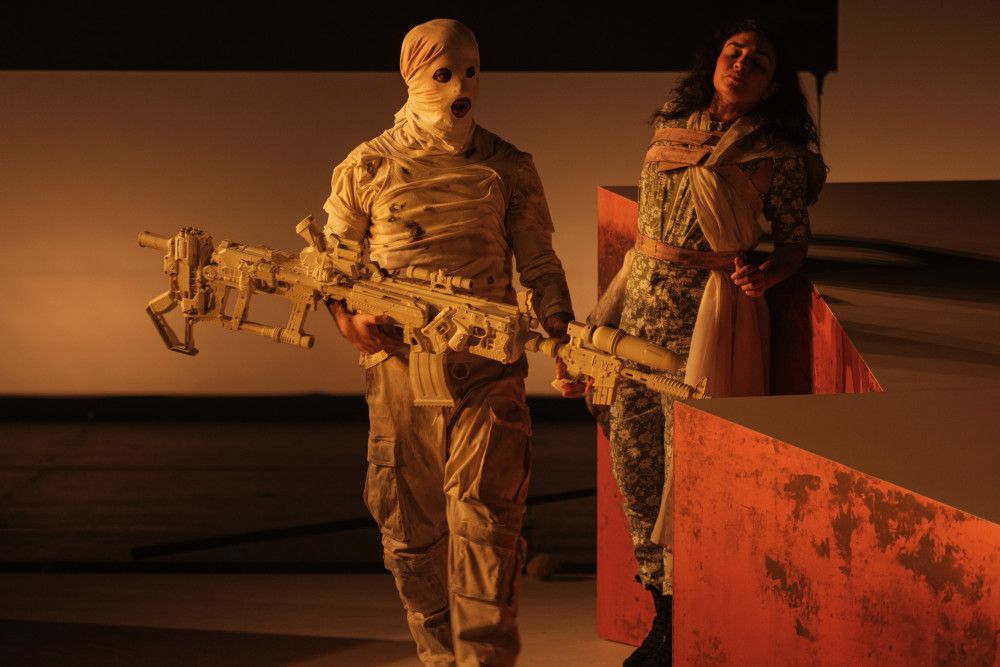
Music and the body, the beating heart of storytelling
Under the leadership of the Talbi sisters, the bodies of the actors and actresses and the music become characters in their own right. Every gesture, every silence, and every note tells a part of this suffocating mystery.
The staging ofFires manages to translate horror in a deeply poetic way. Blood, instead of being a graphic representation of violence, is symbolized by delicately falling red petals, providing an image that is both beautiful and tragic. The costumes created by Sophie El-Assaad are works of art in their own right and add a striking visual dimension, enriching the overall aesthetic of the piece.
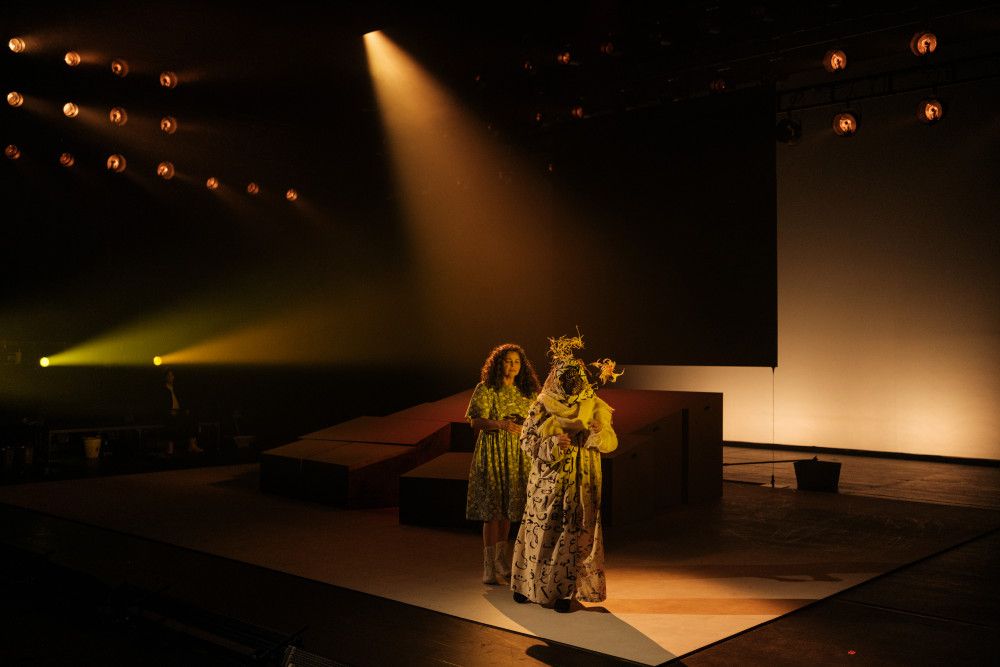
The music by Ilyaa Ghafouri and Radwan Ghazi Moumneh rocks the piece with impressive precision, where each sound embodies the heaviness of the themes addressed while maintaining a surprising lightness, thus creating a striking contrast which enriches the emotional experience of the spectator.
The way of representing chaos exceeds the expectations linked to a work tackling such heavy themes, with exploded blocks constantly rearranged to evoke mountains, the notary's office, a theater, a prison, a court, thus creating a scenic space dynamic and multifunctional. The music, captivating and immersive, accompanies this transformation, while a person manually draws the numbers of the acts of the play as it happens, recalling Freytag's pyramid. This pyramid, designed by German playwright Gustav Freytag, is a narrative tool that illustrates the structure of a dramatic story, breaking down the plot into exposition, build-up, climax, denouement and resolution.
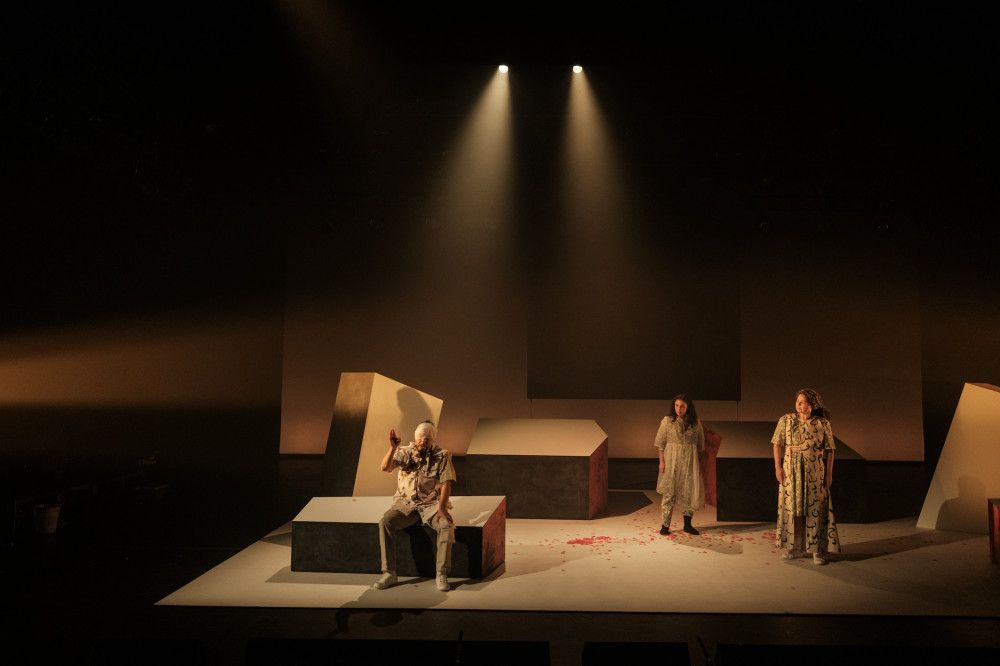
Dominique Pétin, embodying all the Nawals, becomes the soul of this tragedy, bearing the years like visible scars. Her performance makes Nawal's pain and resilience palpable, transforming the stage space into a mosaic of suffering and strength.
Through these artistic choices, the piece transcends the conventional representation of suffering and invites the viewer to explore layers of meaning and emotion, transforming tragedy into an experience that is both reflective and aesthetic.
Beyond the flames, an indestructible love
In horror hides a tenacious tenderness, an indestructible love that survives the worst atrocities. Fires is an ode to the immeasurable power of love, transcending chaos and injustice. Elkahna Talbi and Ines Talbi infuse this piece with a poignant sweetness, like a last breath of hope, reminding us that, even in the ashes of tragedy, love is the flame that never goes out.
With rare intensity, Fires confronts us with our own silences and our need for reconciliation, with others but above all with ourselves.
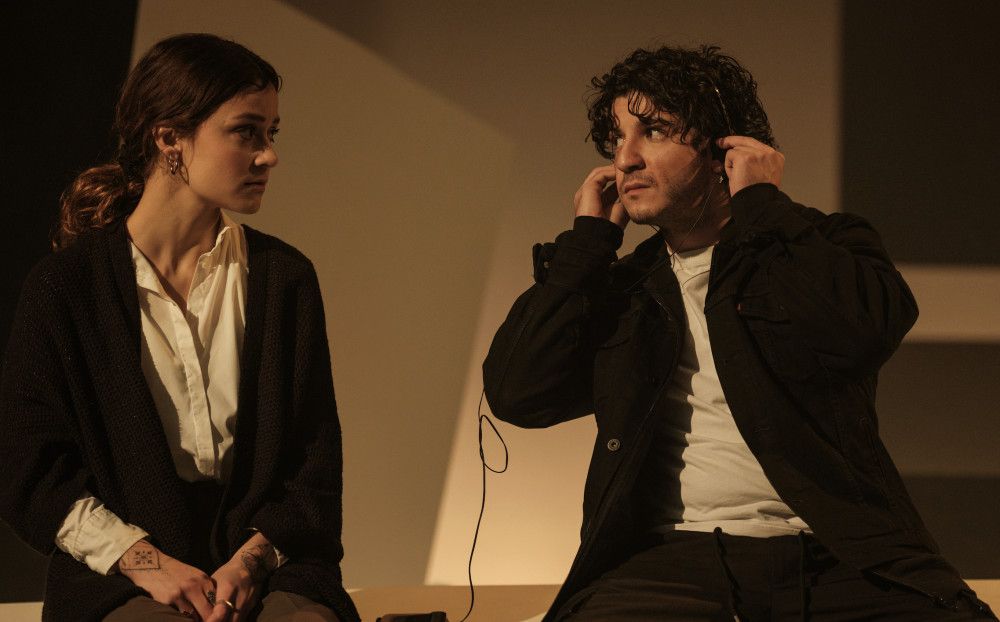
Fires is presented at the Théâtre Duceppe until November 30 at Place des arts and will be on tour from February 7 to April 16 in Quebec.

